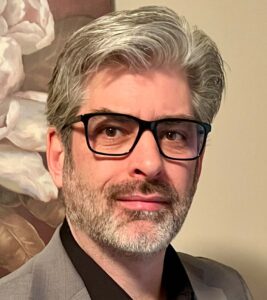
Name: Dan Hooper
Title, including department and school you work in: Director of the Wisconsin IceCube Particle Astrophysics Center (WIPAC), and Professor of Physics
Hometown: Cold Spring, MN
Educational/professional background: PhD from UW–Madison (2003), BS from Saint Cloud State University (1999)
What is your field of research, and how did you get into it? Particle Cosmology and High-Energy Astrophysics, with emphasis in dark matter, neutrino astrophysics, gamma-ray astronomy, cosmic-ray physics, and early universe cosmology
What attracted you to UW–Madison? UW–Madison is a world leader in high-energy and multi-messenger astrophysics, and especially in the field of neutrino astrophysics. I’m excited to be part of the collaboration that operates the IceCube Neutrino Observatory and am eager to work toward building its successor, IceCube-Gen2.
What was your first visit to campus like? I was here as a grad student many years ago. On my very first campus visit, I met my future PhD advisor (Francis Halzen) and started talking with him about research projects. All in all, it was a pretty good day!
What’s the most important lesson you wish to convey to students? Find an area of research that excites you. If you’re excited about your research, it will seem less like work and more like a hobby and a passion!
Does your work relate in any way to the Wisconsin Idea? If so, please describe how. We’re making scientific history at UW–Madison by studying the cosmos with high-energy neutrinos for the first time. I don’t know if this will help us to make a better mousetrap someday, but I do know that I would rather live in a world where human beings are constantly learning more about their incredible universe. I think a lot of people agree with me, so I work hard to share what we’re learning with the public through my books and my podcast, Why This Universe?
What’s something interesting about your area of expertise you can share that will make us sound smarter at parties? 85% of the mass in our universe does not consist of atoms, but of something else that doesn’t appreciably radiate, reflect, or absorb light. We don’t know what this stuff is (yet!), but we call it dark matter.
Hobbies/other interests: When I’m not working, writing, or recording podcasts, I love playing and listening to music.